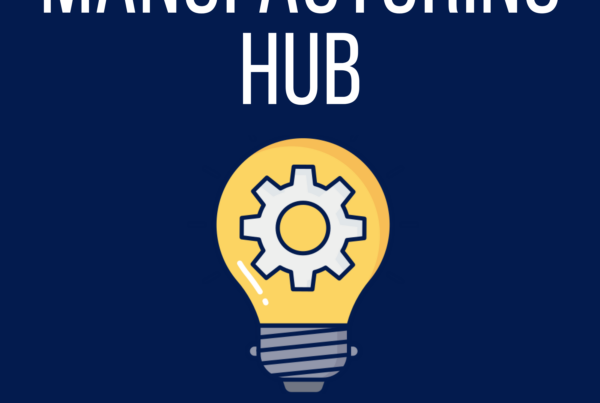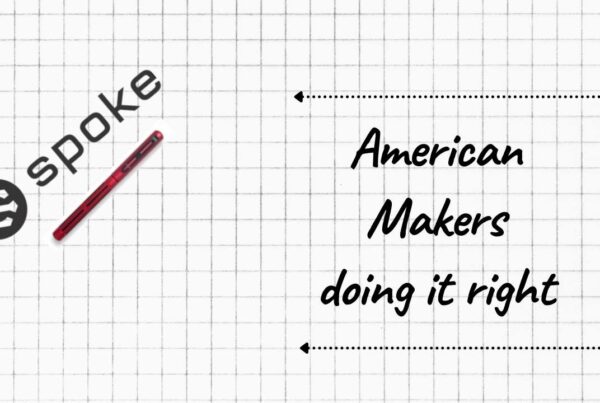Dave: Welcome Jordan Humphries, back to the podcast. And so just so everyone knows, this is the end of March, beginning of April, 2020. Jordan and I have been talking about recruiting in general, our recruiting in the industrial automation sector, and with everything going on with coronavirus and COVID-19, Jordan, do you want to kind of give an update to everyone as to what you’re seeing in the state of recruiting?
Jordan: Yeah, absolutely. Thanks for welcoming me back, very happy and excited to be a part of this continuing podcast. Hopefully we’re providing value. That’s what we’re here for at the end of the day. So obviously we’re, we’re going through COVID, corona virus, whichever name you want to use. A global pandemic. Things are shifting. Employment-wise the economy was strong, unemployment was at an all time low. Whoever had wanted a job, had a job. Abruptly, that has changed. I don’t want to say overnight, but in the last couple of weeks that’s changed and it’s starting to change. And we’ll see in the next coming weeks and months how much it changes. As far as unemployment, I’ve heard numbers as high as 30% unemployment. You know, I don’t know of any veracity of those claims, but we’ll see. Currently we have been in a candidates market with unemployment, so low everybody having a job.
Jordan: So if you wanted to move a job, you were courted almost from a new employer. Well, with all this changing and everybody laying off, we’re now switching over to an employer market. The candidates no longer have the leverage. Now with such in the industry, I have yet to see this in my niche which obviously is industrial automation. I have yet to see this happen, the layoffs. Everybody’s got manufacturing, we’re up, we’re running, the PLCs are up and running. We’re debugging, we’re commissioning, we’re still doing all those things. So it will be interesting to see if we are impacted heavily. What sectors, is it oil and gas? Obviously we know they’re going through some hard times, but does it go over into pharmaceuticals? I would think not cause we all need the medicine. Automotive could slow down.
Jordan: We’ll just have to kind of see as it goes. But I’ve seen, you know, I follow other people and recruiters in the industries. I’ve seen public accountants starting to be affected. So we’re going to see a switch over to a employers market now. First employers have to be willing to hire for their team and see a market. Right now I would consider there no market. People are trying to make decisions on should we let people go, or do we need to close down. But as far as hiring, there’s not a whole lot of it going on. But again, there’s so much up in the air and how, how long this will last. Once we reach the peak and get past the curve so to speak, the economy starts to recover. That’s when we’ll really see an employers market.
Jordan: You’ve got a dearth of candidates out there for your positions. I’ve got two positions open and now I’ve got 50 people applying that could be, could be a fit for my position. So instead of posting it a couple months ago and only having one or two people apply and having to engage in recruiting and in your networks, courting them, it’s going to switch now. Now the employers have the leverage. So you’ve got to really sharpen your skills, your resume, your content. If you’re putting anything out there in the next month or two to get ready to dot your I’s, cross your T’s, to be in that candidate market to compete with the other candidates. It could be different for different sectors than automation. I have one set of rules inour industry versus, you know, accounting or any other kinds of jobs. We can go into different strategies, different tips and tricks you can to make yourself the brightest out there. But yeah, I do see a switch coming, coming up here in, you know, a couple of weeks to a month or so, what happens overall to our job market.
Dave: No, definitely. I think that that makes sense. I know that we had talked a little bit in the beginning about how it is tough times for everyone. As you had mentioned, Jordan, it’s kind of switched and there isn’t a job for everyone that wants one, but that soon enough and longer than almost any of us would want, It will be back to people are hiring, people are looking to find good candidates for their open positions. And I know one question that we had gotten a lot of, is talking about applicant tracking systems, which is something that I don’t think either of us have necessarily had good experiences with. It kind of feels like every time I’ve gone and looked at it from a talent side is I’m literally filling out the same form that I fill out everywhere that can’t pull off of my resume and I spend all this time doing it.
Dave: I check all of these jobs that I think I might be interested in. And then after that I sent it into this black hole. And most of the time I get an email like three to 10 months later talking about a completely different position that is completely outside of it. Or the same recruiting agency has somehow managed to scrape Indeed.com for a 10 year old resume. So coming from the recruiter side, can you talk a little bit about applicant tracking systems. I know that you’ve talked about that you don’t necessarily like them, but can you talk a little bit about those?
Jordan: Yeah, I think you said everything that I would say, what you just said about ATS. They are a necessary evil, larger corporations, larger recruiting firms. We’ve got a lot of data and we have to be able to track it. We’ve got to organize it. So there’s software out there that comes and says, Hey, you know, you need X and Z. I’m going to provide that for you in this software. So there’s some good things and there’s some bad things. The software at some point can only be as good as the person that’s using it. How have they been trained, how are they with dealing with people. Are they a good recruiter? Do they care about the people they talk to? Are people just a resume to them? I think that goes into a lot because you have tools that you can use in your ATS, to build pipelines, to keep track of people that you’ve talked to. Keeping an update on your, on your hot pipelines, people that you know you can get filled. You just have to find the right opportunity. There’s all kinds of strategies built into your ATS to help you with the role on an, on a recruiter side.
Dave: We lost you there, Jordan, you said, you said, well you got most of the way through unfortunately. And then you just kind of…
Jordan: Yeah, so, so going back, there’s a lot of red tape that comes with ATS from a recruiter that’s managing their candidates from an account manager who’s managing their clients and also the recruiters with their candidates. So we spend a lot of time typing in information, double work, sometimes triple work. All of that redundancy, affects where you can spend time with your candidates.
Dave: Okay. So, so your opinion, Jordan, applicant tracking systems, ATS is, they’re a necessary evil and we on the talent side are going to have to go through those. But we should also continue to build those relationships with specific recruiters within our industry so that we can have real life human to human conversations?
Jordan: Yeah. Yeah. Don’t rely just on an ATS. And in your recruiter have a good, we’ve talked about having a good relationship. Email them, call them, you know, every once in a while. And it doesn’t have to be a five, 10 minute conversation. It could be a couple of lines. Just check in, that way they know that you’re still breathing, still looking. And it helps out on recruiters as well. Like I said, we’ve got a lot there. There’s KPIs that are been put on us, make so many calls a day, make so many contacts a day, so many emails that we can get lost in that and the real shuffle of people. Dave, you might be looking for a job and I think Dave’s a great guy. I can get him placed, let me put them on my pipeline and I will.
Jordan: Oh, what’s that I’ve got to make my calls. I’ve got to make these emails, I’ve got to make these notes. Okay, let me get to that. And then guess what Dave goes by the side. So ATS is the necessary evil. It can help us get some things done. We’ve just got to be able to do them right on the talent side. And a lot, especially in firms, I would say to upper management, be easy on your account managers and recruiters. Let them be touching their candidates more. And that’s face to face conversations, phone conversations, emails. On the talent or the candidate side of using an ATS, again, it’s a necessary evil. If it’s not a small mom and pop shop, if it’s not a small, medium sized business where you can go and meet the HR and person the hiring manager and talk shop a little bit, build a network, build a, build a relationship.
Jordan: Maybe it’s a Fortune 500 company and they’ve got offices internationally, all spread across the US. They’ve got different district managers for different zones. I can’t just show up at the, you know, Indiana, the mid East zone director and start having a conversation with them. It’s much harder. So that’s where with an ATS, you know, you gotta put your pole in the water so to speak. So fill it out and put, put your name in the hat. Now as far as ATS technology, yes, if I have a resume, I should be able to just click paste, boom. That’s done. Having,you know, 10 different companies, I’m looking for a job, 10 different companies and I got to apply to 10 different ones and go out and fill it out. I’m going to spend a whole day on just one. It’s all in my resume. It’s copy and paste. There you go. We need to cut down on the time.



